Preceptorship Training at Womack Army Medical Center
Overview of Visit
Earlier this year, Miriam Chickering, Founder and President of Nurses International and Dr. Susan Boyer, the Director of the Clinical Alliance, traveled together to Womack Army Medical Center (WAMC) at Fort Liberty (formerly Fort Bragg) to co-lead a Preceptor and Clinical Competency Development Course designed to empower preceptors and equip WAMC’s trainers to independently carry the initiative forward.
This was not just a course, it was a hospital-wide capacity-building initiative spanning inpatient units, outpatient clinics, leadership teams, and interdisciplinary stakeholders. The commitment and energy of WAMC’s healthcare professionals were inspiring.
About Womack Army Medical Center (WAMC)
WAMC is one of the U.S. Army’s most sophisticated medical centers. Located in Fort Liberty, North Carolina, it serves more than 160,000 eligible beneficiaries, including active-duty service members, retirees, and their families. The hospital is recognized for its patient-centered care, clinical research, and its strong integration of military readiness into healthcare operations.
WAMC’s commitment to excellence made it the ideal environment to implement the evidence-based Transition in Practice – To Optimal Performance (TIP-TOP) Model.
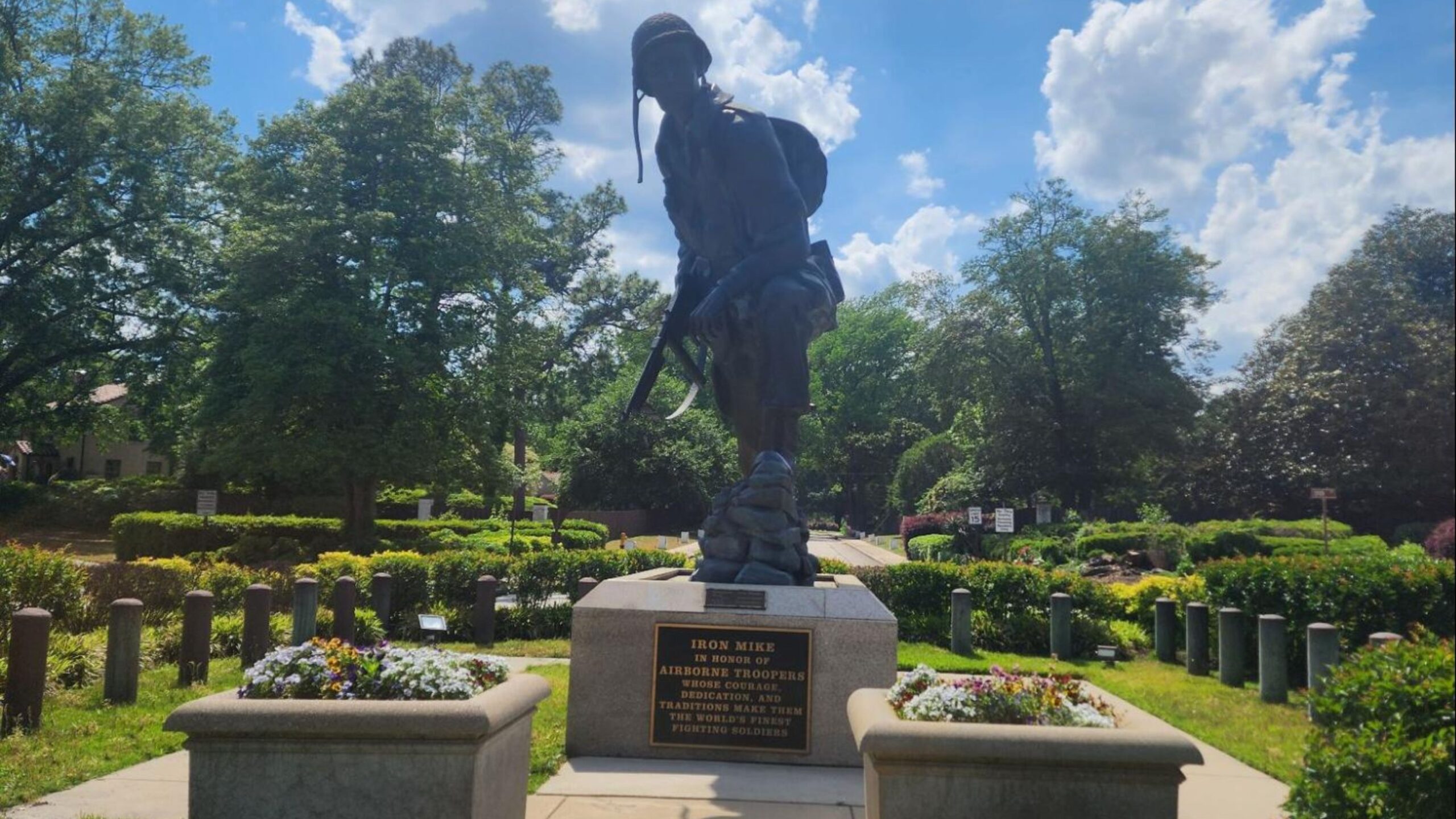
A Week of Immersive, Interdisciplinary Education
Monday: Laying the Foundation
The week began with the introduction of the TIP-TOP model. The model integrates both Preceptor and Clinical Competency development and support systems. Participants reviewed their Preceptor Workbooks in advance, allowing for a deeper discussion of clinical coaching plans, critical thinking development, customization of the Clinical Competency Framework (CCF), and integration of leadership theory and instructional design.
The discussion emphasized the use of the TIP-TOP competency validation templates along with Nurses International’s broader educational and leadership tools.
Tuesday: Preceptor Course
This day focused exclusively on preceptors, the clinicians guiding new hires and new graduates through their orientation. Topics included documentation, communication, and feedback strategies, critical thinking and clinical judgment development, role-playing exercises to practice coaching plans and peer teaching, and cross-disciplinary integration and handling generational differences.
The energy in the room was palpable as nurses shared best practices, challenges, and a genuine commitment to the professional growth of others.
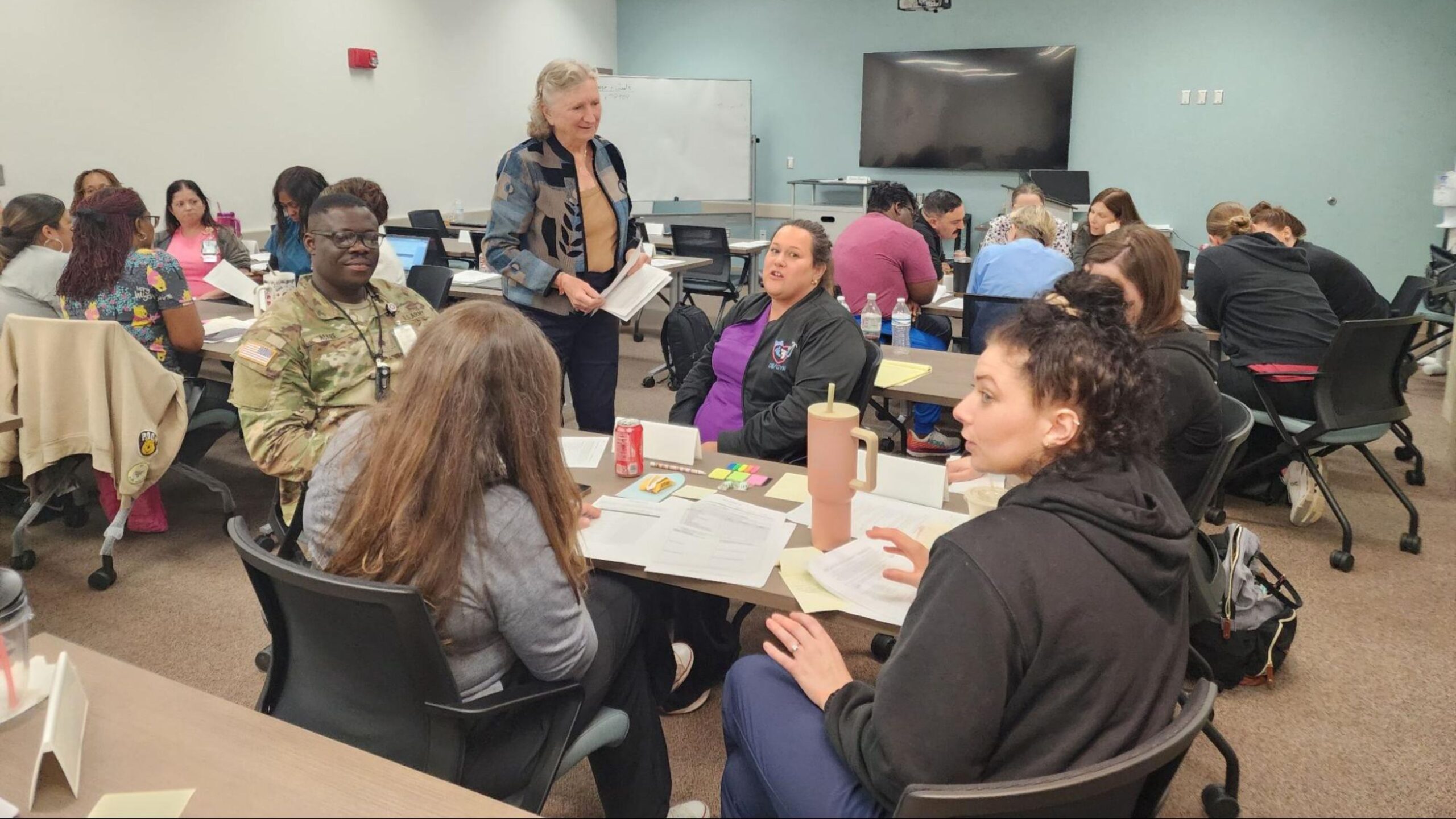
Wednesday: Clinical Leadership and Specialty Competency Validation
The team worked with clinical leaders and educators to customize unit-specific competency statements, incorporating tools from NextGenU.org and open-access educational resources. This day was about alignment: aligning policy, HR processes, education systems, and leadership strategies into one coherent framework.
Thursday: Customization Day
Participants rolled up their sleeves to adapt preceptor development pathways, coaching tools, and policies for onboarding and specialty transition; competency validation templates for tracking orientation &/or transition to a new specialty; and cross-disciplinary education models, including how to train preceptors in allied health roles.
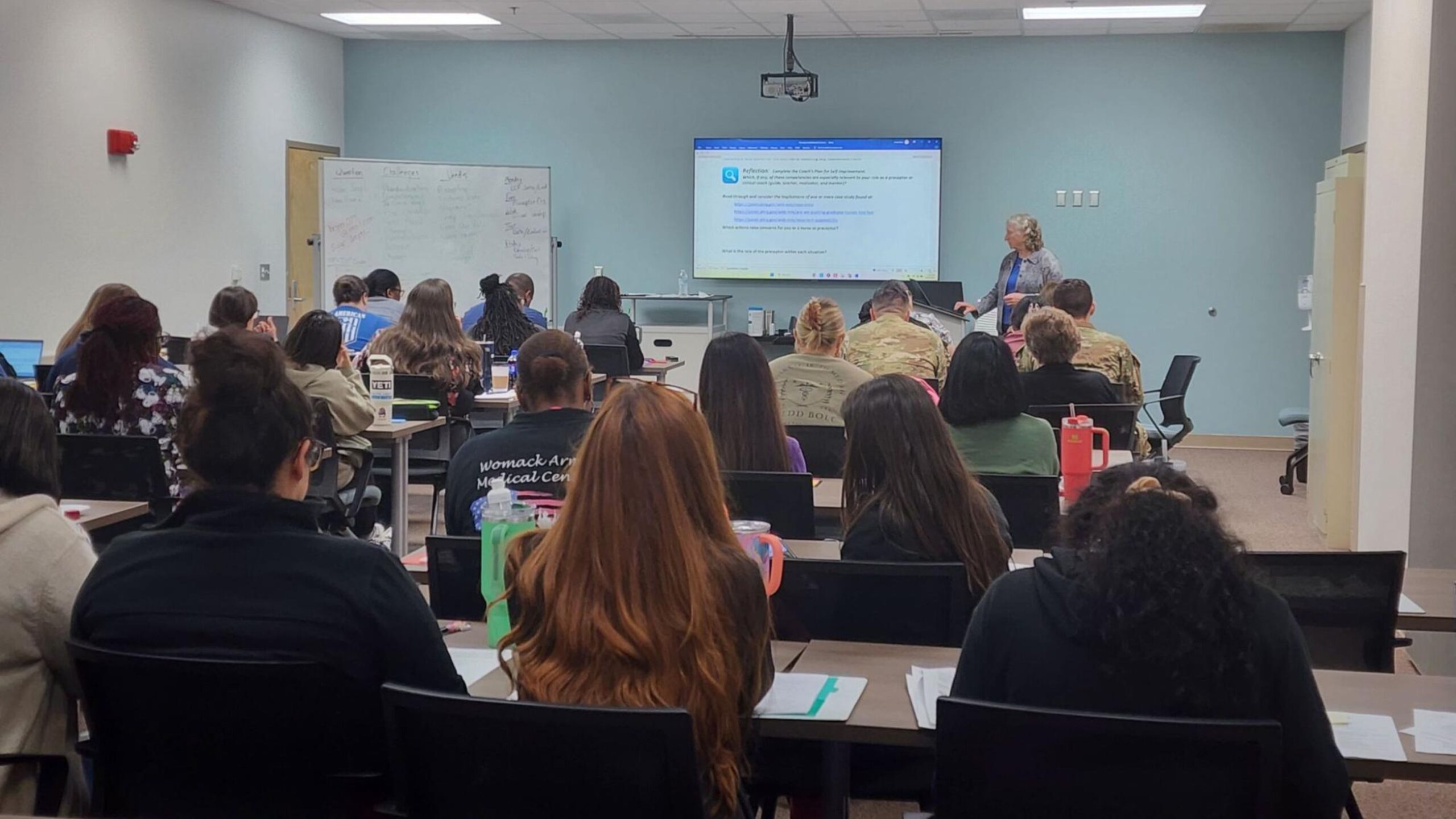
Friday: Sustaining the Change
Rapid Cycle Quality Improvement (RCQI) tools were used to establish evaluation strategies, create a support plan for sustaining the TIP-TOP model, build a system for feedback and customization, and draft ideas for a Defense Health Agency-wide (DHA) toolkit repository.
Key Outcomes
Key outcomes of the initiative include the training of dozens of clinicians across departments to serve as preceptors, establishing a sustainable “train-the-trainer” model that empowers local trainers. Additionally, customized policies and tools were developed to support orientation, documentation, coaching, and evaluation processes. Perhaps most notably, the initiative sparked a culture shift, fostering a growing sense of ownership and interdepartmental collaboration.
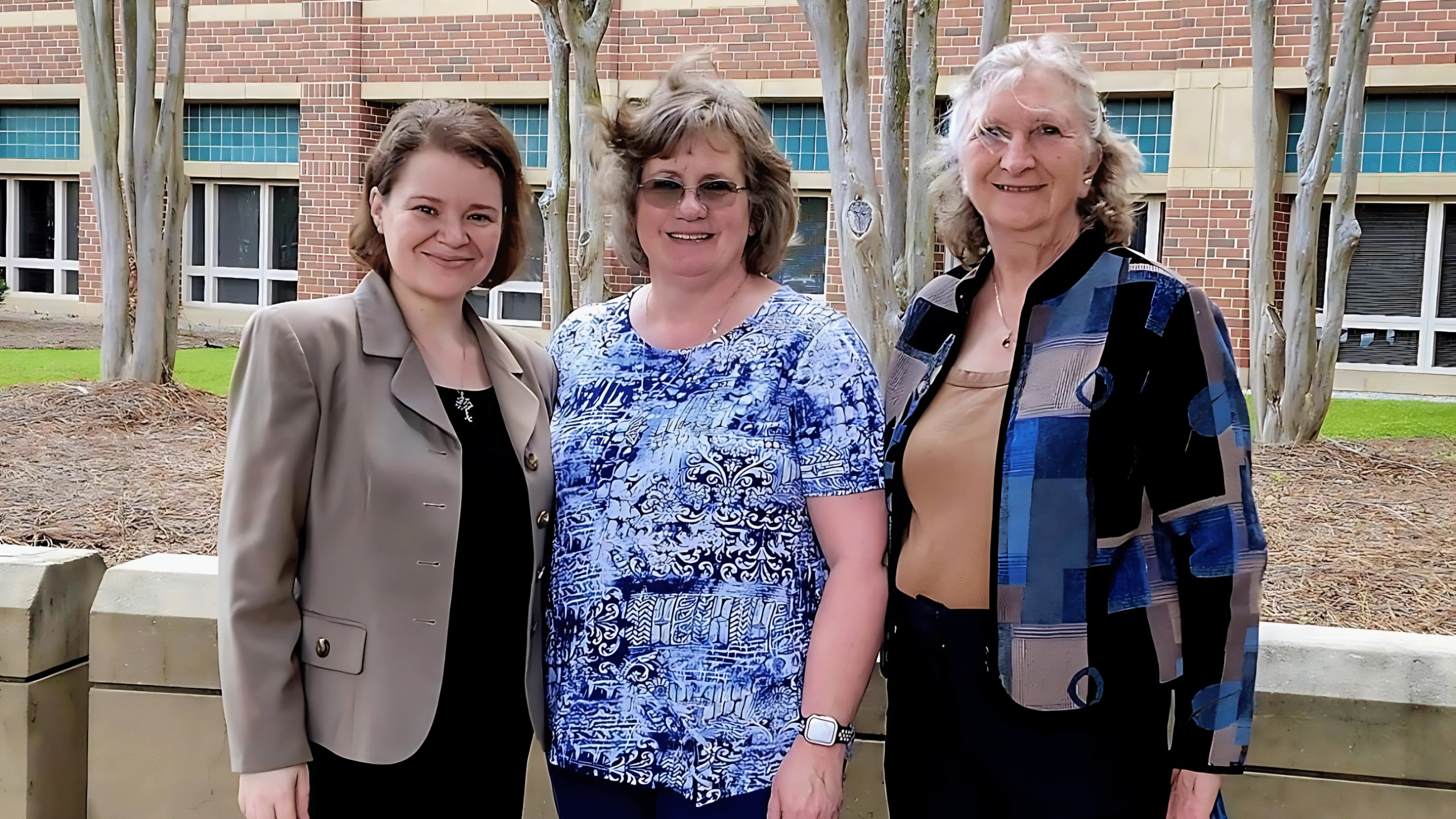
Reflections by Miriam and Susan
We were deeply moved by the dedication of the Womack team. These service-oriented professionals brought curiosity, creativity, and compassion to every discussion. They demonstrated that the military’s values – discipline, excellence, service – also apply beautifully to healthcare education.
We left feeling energized, encouraged, and excited for what’s ahead, not just at WAMC, but across the broader military health system.
As we continue our work through Nurses International and the Clinical Alliance, the Womack experience will remain a gold standard for what’s possible when clinical practice, education, and leadership align toward a shared vision.
We are honored to have played a role in this journey.
To learn more about the Clinical Alliance, you can visit our website.
Author: Samantha Baboolal
Nurses International is a non-profit entirely focused on helping nurses obtain the education and the support they need to make a difference in developing nations worldwide.
We connect colleges and institutions with experts who can take their nursing programs to the next level. We help establish new nursing programs where they’re needed most. And we eliminate the barriers that stand between students and education.
QUICK LINKS
CONTACT US
FOLLOW US
EIN: 46-4502500